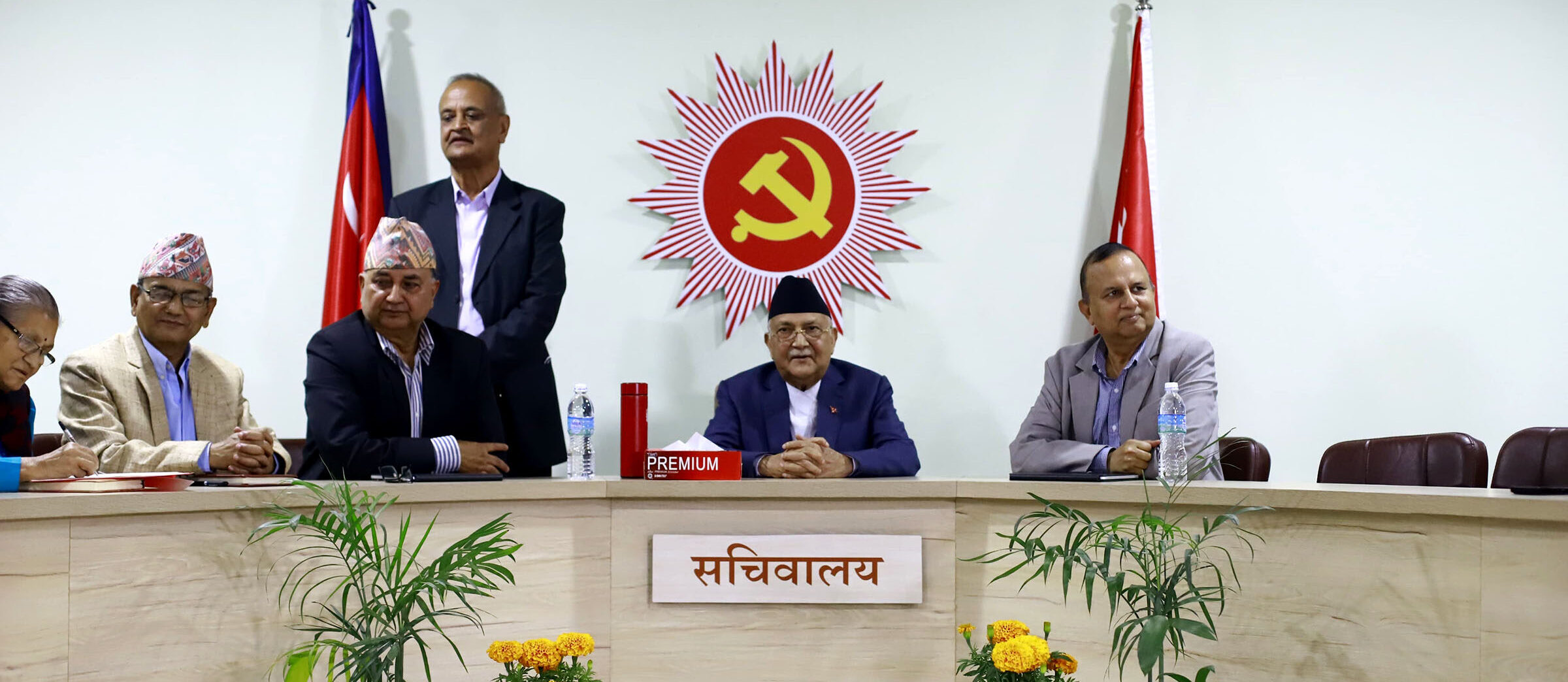KATHMANDU: The comments made by CPN-UML Chairman and Prime Minister KP Oli during Sunday’s party Secretariat meeting reveal a complex and precarious political landscape in Nepal.
His assertion that there are ongoing attempts to topple the government indicates a significant level of anxiety within his party.
This concern suggests that he perceives external threats to his administration, potentially stemming from opposition parties or discontented factions within his own coalition.
PM Oli’s acknowledgment that “national politics is getting complicated” reflects an awareness of the internal discord not only within the CPN-UML but also in its coalition with the Nepali Congress.
This coalition, as PM Oli argues, has faced challenges in maintaining unity, especially as the political climate remains turbulent.
The coming weeks will be pivotal in determining whether Oli’s government can weather the current storm or if it will succumb to the pressures of political instability.
The reference to “chaotic” internal rows suggests that factionalism may be undermining party cohesion, making it difficult to present a united front in the face of external pressures.
Prime Minister Oli’s remarks about the relationship with the Nepali Congress further highlight the precarious nature of coalition politics.
While he claims that relations are currently stable, his observation that Congress leaders are aligning against the government hints at an underlying tension that could easily shift from cooperation to contention.
This duality in his statements underscores the challenges inherent in coalition governance, where alliances can rapidly evolve based on political circumstances.
Additionally, the protests led by Rabi Lamichhane of the Rastriya Swatantra Party, following his arrest in the Suryadarshan Cooperative fraud case, reflect rising public dissent and the potential for mobilization against the government.
Lamichhane’s call for nationwide protests signifies a significant public sentiment that could jeopardize Oli’s leadership.
The ability of a political figure, even when arrested, to galvanize public opposition indicates that discontent with the government may be deep-rooted and widespread.
This presents a challenge for Prime Minister Oli, as he must navigate both internal party strife and the external pressures of growing public discontent.
To address these challenges, the CPN-UML, he argued, will need to focus on strengthening internal cohesion and addressing dissenting voices within the party.
Proactively managing relationships with coalition partners like the Nepali Congress is essential for maintaining governmental stability.
Additionally, PM Oli’s government needs to consider implementing policies that resonate with public concerns, particularly in light of increasing protests and dissatisfaction, according to observers.
PM Oli’s statements at the Secretariat meeting reflect a government on alert, navigating a landscape rife with potential threats.
His emphasis on vigilance and internal unity will be crucial as he seeks to solidify his administration’s position amidst rising pressure from both within and outside the government.
The coming weeks will be pivotal in determining whether Oli’s government can weather the current storm or if it will succumb to the pressures of political instability.









Comment